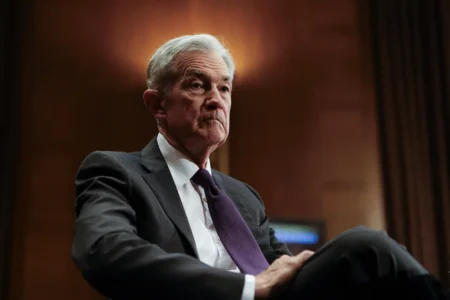The outlook among small businesses in the United States declined slightly in June, according to a report released Tuesday by the National Federation of Independent Business. The group’s monthly optimism index dropped by 0.2 points to 98.6. While the figure remains just above the historical average of 98, it fell short of economists’ expectations, who had forecast a reading of 98.7.
The dip was driven largely by an increase in small firms reporting excess inventory levels, suggesting weaker-than-expected consumer demand. The report also highlighted high levels of uncertainty, which the NFIB said are holding back real investment and causing business owners to delay spending decisions.
Small business hiring plans have continued to slow. The NFIB noted that job creation is gradually decreasing and is expected to keep trending downward. This reflects broader signs that the small business sector is cautious about expanding payrolls in the current economic climate.
Taxes remain the biggest concern for small business owners, according to the report. However, many also cited poor labor quality and rising wages as significant challenges. “Taxes remain the top issue on Main Street, but many others are still concerned about labor quality and high labor costs,” said Bill Dunkelberg, NFIB’s chief economist.
Inflation continues to run higher than the Federal Reserve’s target, placing more pressure on small firms. As labor costs rise, many business owners are planning to increase their selling prices to maintain profit margins. This trend could contribute to further inflation in the months ahead, even as the Fed works to bring prices under control.
While lower mortgage rates might reduce borrowing costs for small businesses, the NFIB pointed out that supply constraints remain a bigger barrier than financing. Many businesses report difficulty accessing the goods and materials they need, which continues to limit growth and productivity.
The NFIB emphasized that consumer spending will play a key role in shaping the near-term outlook for small businesses. However, political and economic uncertainty are affecting how consumers behave. Sentiment remains low and sharply divided along political lines, particularly between Republicans and Democrats.
“Just how this will shape their spending is less clear,” the NFIB said in its report. “As uncertainty is resolved, the outlook will become clearer.”
This month’s optimism reading reflects a cautious mood across the small business landscape. While the index is still close to its long-term average, the slight decline suggests growing concern among entrepreneurs about future demand and ongoing cost pressures.
With inflation staying stubbornly high and hiring becoming more difficult, small businesses are finding themselves squeezed. The ongoing challenges could slow economic momentum, particularly if consumer confidence and demand continue to lag.
Overall, the NFIB’s June report signals that small firms are still struggling to find stability in a complex economic environment. The slight dip in optimism may seem minor, but it underscores the deeper issues at play—rising costs, uneven demand, and lingering uncertainty—that could shape the small business economy in the months ahead.







